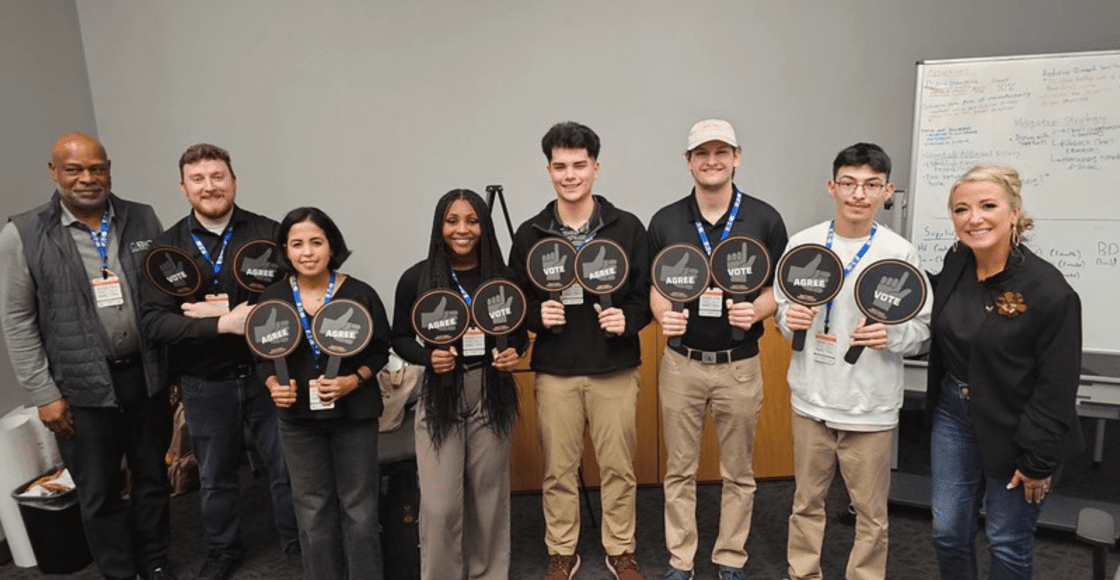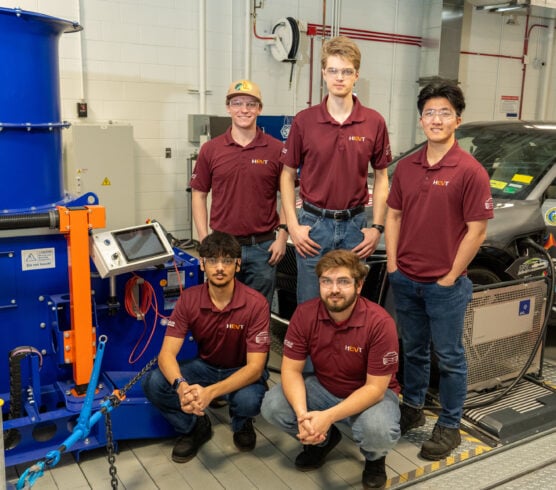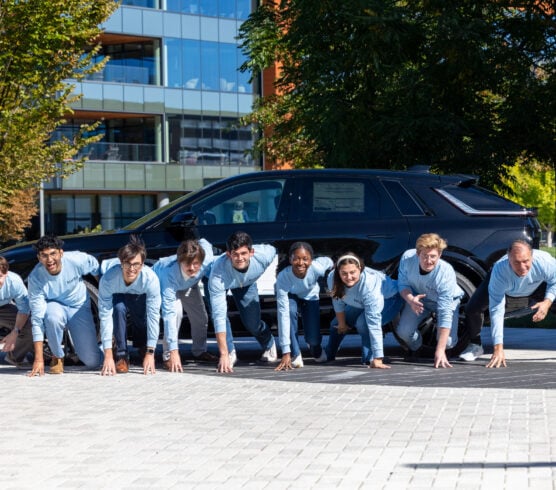By Em Jankauski / Argonne National Laboratory
Leadership is inspiring and encouraging others, but it’s also providing accountability and a corrective course of action when things haven’t gone according to plan. That’s exactly the life lesson Battery Workforce Challenge collegiate competition project managers and vocational deputies learned during the year two winter workshop’s Project Management Assessment Center held Feb. 28 and March 1 at Greenville Technical College’s Center for Manufacturing Innovation in Greenville, S.C.
This two-day module put BattChallenger project managers and vocational deputies to the test, assessing their teamwork and industrial strategizing skills to develop a welding strategy for their modules in prep for the year two competition.
Devising impressive industrial strategies
“Our first assessment, industrial strategy, was arguably the most challenging deliverable required of the project managers so far,” said Hannah DiPalomares, Argonne National Laboratory’s technical project manager for the BattChallenge, who conceptualized and is the original author of the PMAC.
The panel entailed senior-level executives and experienced program managers asking students tough questions, challenging their line of reasoning and pushing them to defend their engineering strategy.
For Isabel Builes Sanchez and Ritchie Chavez, the Cal State LA & Cerritos College team’s project manager and vocational deputy, respectively, this meant collaborating with BattChallenge sponsor Hesse Mechatronics to establish timelines, source vendors and materials as well as develop strategies to expedite the welding process while ensuring they met competition deadlines.
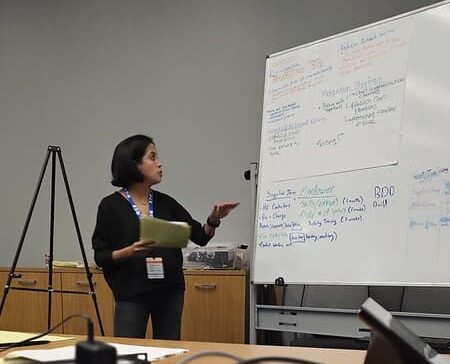
“Facilitating agreement among team members requires clear communication, structured discussions and a collaborative approach to decision-making,” Builes Sanchez said. “I gained experience leading the team in making decisions.”
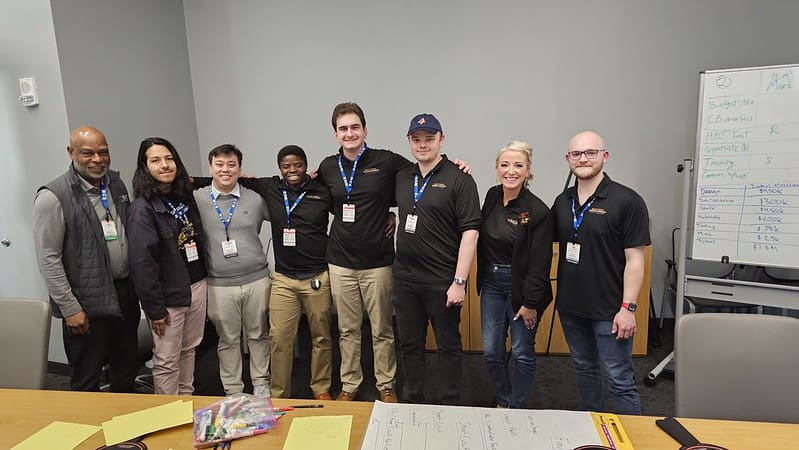
Joe Borgerson, The Ohio State University & Columbus State Community College team’s vocational deputy, spent much of this module on leveraging the team’s connections with industry experts like Hesse Mechatronics, Acculon Energy and Shaeffler to develop a plan that reflected some of the challenges the crew might see in a corporate setting.
He credits the boardroom activity for leveling up his confidence in his professional skills.
“Getting feedback from such esteemed members of the industry gives us confidence that we can take these skills and apply them to better ourselves in whatever role we may find ourselves pursuing in the future,” Borgerson said.
For Grace Parra Pancha, the University of Waterloo & Lambton College team’s project manager, the industrial strategy portion of the PMAC had her crew developing detailed strategies to determine using Hesse Mechatronics for its welding plan and identifying a specialized shipper to handle the transport of lithium-ion batteries.
Ensuring all the ins and outs of her team’s successful delivery of its welding strategy in time for the May competition had its fair share of challenges.
“Staying calm during the industrial strategy presentation was the biggest challenge,” Parra Pancha said. “The questions came quickly and could have shaken my confidence.”
Her takeaway?
“Learning to control my nerves, breathe and stay focused helped me push through,” Parra Pancha added.
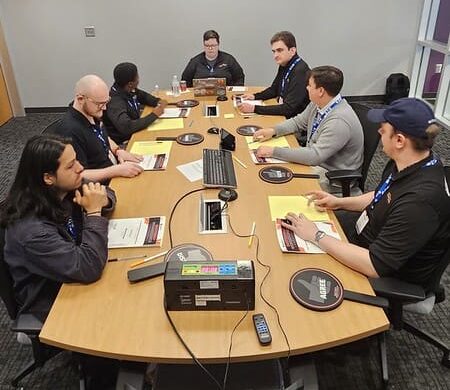
Despite the pressure, the students held their ground with professionalism and deep battery know-how.
“They didn’t just survive, they thrived,” DiPalomares said. “Watching the students rise to the occasion was incredible.”
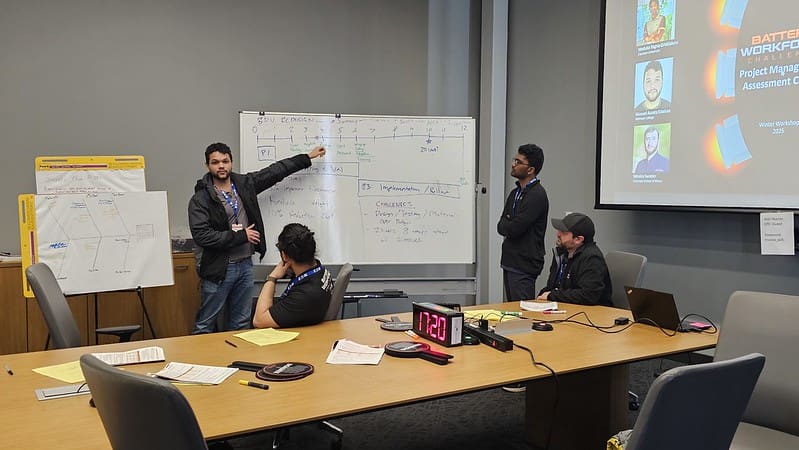
Teamwork makes the dream work
The next assessment focused on project management skills, evaluating students’ individual performance. This teamwork module had students working together with five members from other teams in the competition to analyze a case study provided to them day-of, allowing them 30 minutes to independently review the material before collaboratively working together to present a cohesive strategy for a battery disconnect unit redesign, under tight constraints, that was delivered to an industry-expert-packed boardroom.
Borgerson teamed up with project managers from Jackson State University, The University of Alabama and University of Michigan-Dearborn as well as vocational deputies from Mohawk College and Merced College.
“I had a great time getting to collaborate with some of the members from the other teams,” Borgerson said. “It was really interesting how much we were able to analyze from a relatively small amount of detail in such a small amount of time.”
Builes Sanchez worked with project managers from The Ohio State University and Rose-Hulman Institute of Technology as well as vocational deputies from Hinds Community College, Shelton State Community College and Henry Ford University.
Together, they tackled challenges related to project management, leadership and problem-solving, emphasizing adaptability and collaboration.
“For me, the focus was integrating those diverse perspectives from different institutions and backgrounds while aligning efforts toward a common objective,” Builes Sanchez said.
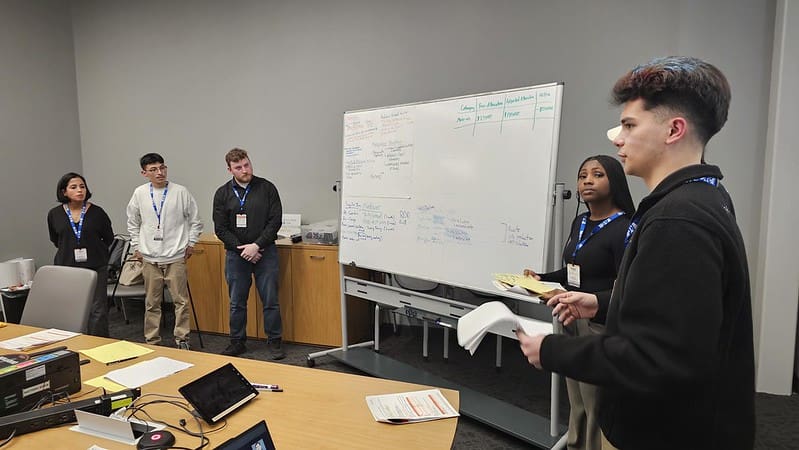
Parra Pancha collaborated with project managers from McMaster University and the University of California, Merced as well as vocational deputies from Arapahoe Community College, College of Southern Nevada and Greenville Technical College.
This on-the-spot activity truly showed Parra Pancha that it’s OK to not have all the answers.
“Drawing on the expertise of the team and stakeholders helps develop stronger strategies and handle challenges more effectively,” Parra Pancha said.
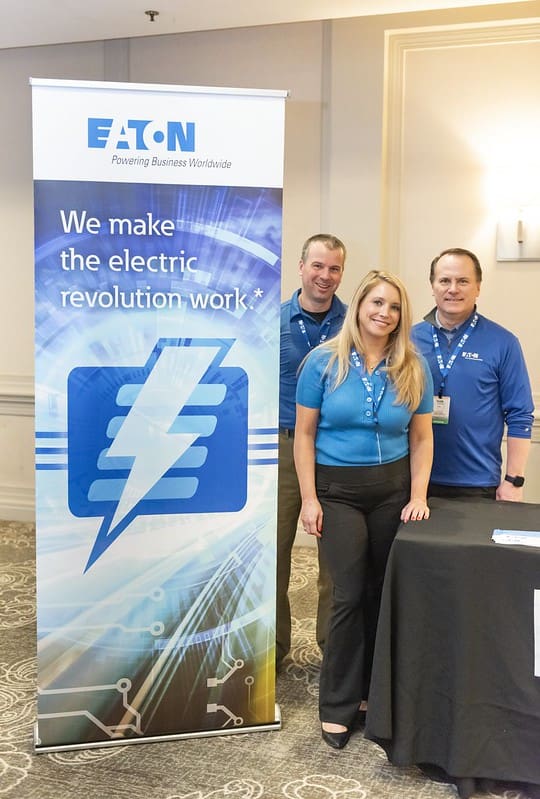
Industrial experts lending constructive advice
For the industry experts in the room, it was truly a unique opportunity to watch the students work in the pressure-cooker-like boardroom.
“There were no comfort zones in day two,” said Lindsey Pilato, Eaton’s North America Systems e-Mobility program management leader who was one of the industry experts in the room. “Students were absolutely thrown together, given minimal tools and the assignment had some ambiguity or freedom to make choices on the narrative stakeholder pitch.”
The stress-test kept Pilato on her toes as she watched teams work together in ways they likely hadn’t ever experienced.
“I was so surprised at the outcome and chemistry of some of the teams,” Pilato said. “It was a great learning experience for me.”
The experience made Pilato draw upon her own experience as an industry professional at Eaton, considering different opportunities to excel and improve.
“As a project manager, we are constantly thrown into unpredictable situations, where flexibility, adaptability and big-picture thinking have to be at the forefront,” Pilato said. “These exercises were something I could absolutely picture myself navigating, and it provided some food for thought on how I could approach a challenge differently.”
Also in the room was Ashley Balaberda, Stellantis’ hybrid vehicle battery program manager, who sympathized with the students having to make critical decisions in such an open-ended challenge.
“There was a lot of freedom, which offers opportunity for exploration, (which) can also be overwhelming; however, it is representative of the real word,” Balaberda said. “I hope they see the value in it — if not now, then later in their careers.”
Balaberda was most impressed by the students’ camaraderie, watching them fist bump, patting each other on the back and even praising one another.
“Soft skills are difficult to teach, but (they) can take a person far in their career,” Balaberda said.
Her advice for these future industry leaders?
“Utilize the resources (you) have and ask lots of questions,” Balaberda said. “Even the smartest person in the world will never know everything. Every day is learning regardless of the type of career (you) pursue.”
DiPalomares took the lead in bringing this challenge to life. The idea comes from a deeply rooted professional belief she holds: being a successful project manager means having one foot in the classroom and the other embedded in real-world experience.
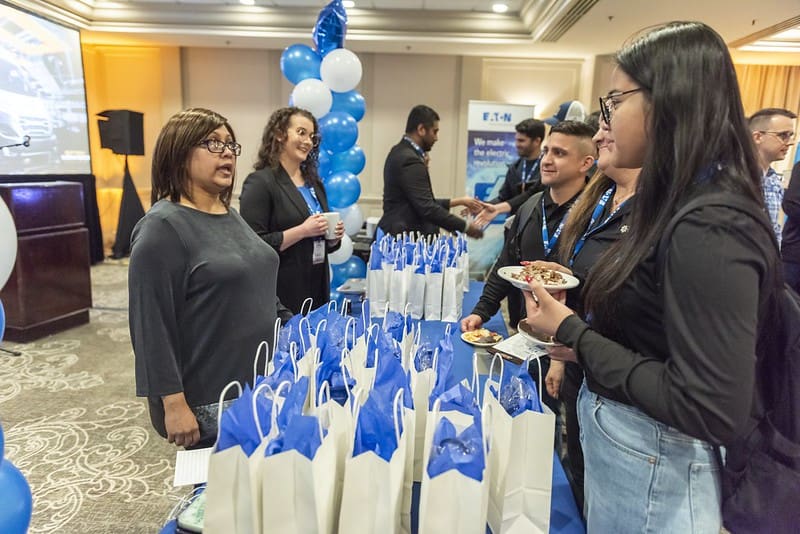
“Watching the students rise to the challenge gave me goosebumps,” DiPalomares said. “The impact of this exercise was undeniable, and I left even more convinced that experiential learning is key to developing the next generation of project managers.”
In her post-PMAC reflection, DiPalomares offers three pieces of advice.
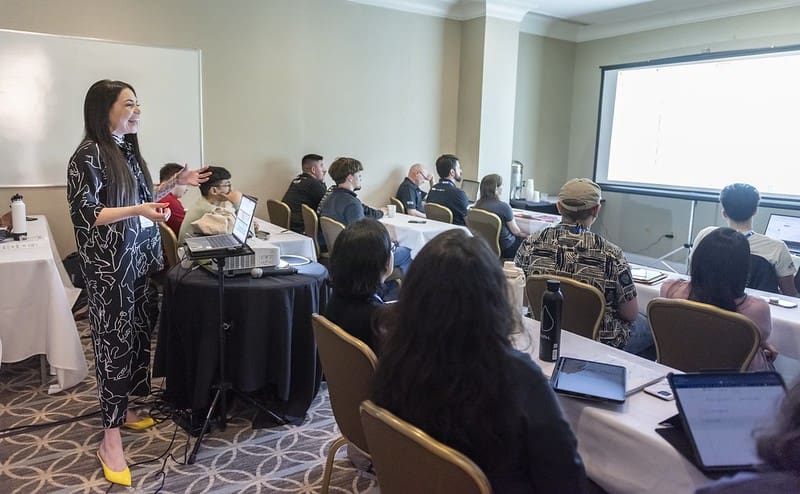
First? Embrace adversity.
“It takes a special kind of person to bring order to chaos and build something meaningful out of uncertainty,” DiPalomares said.
Secondly, students should be proud of their problem-solving abilities.
“Even on the days when it feels like everything is breaking, that resilience is what makes great project managers,” DiPalomares said.
Last, and most importantly, all industry professionals should celebrate their wins.
“Big or small,” DiPalomares added. “Because in this field, success isn’t just about avoiding failure; it’s about pushing through it and coming out stronger.”
